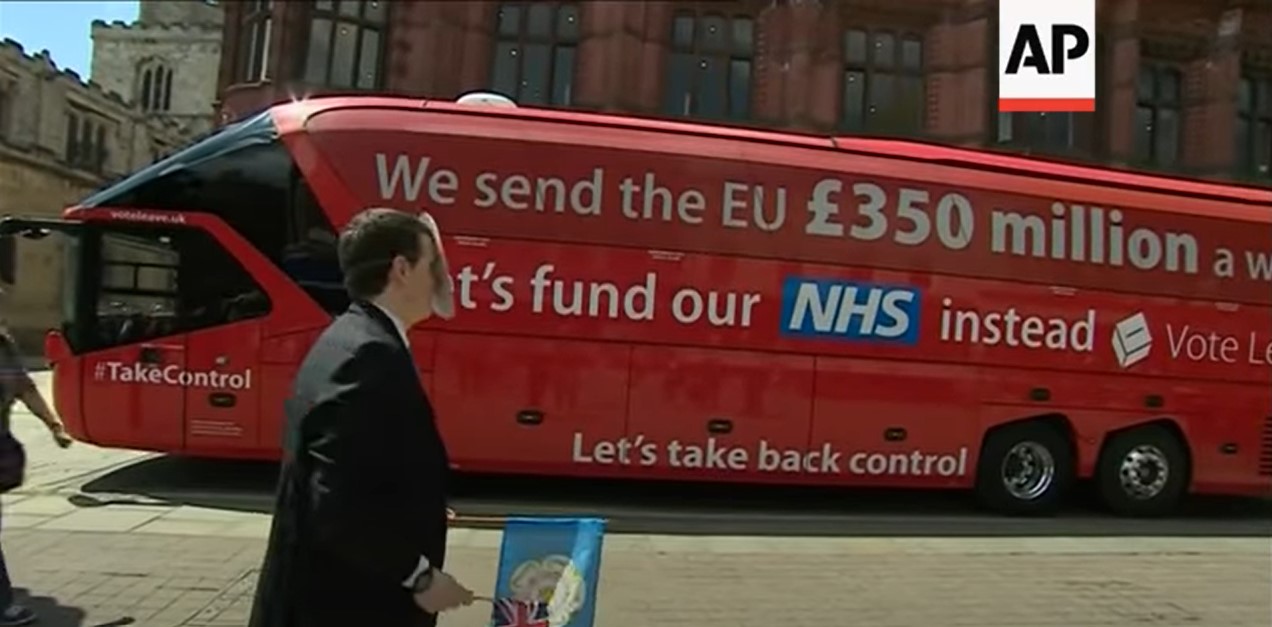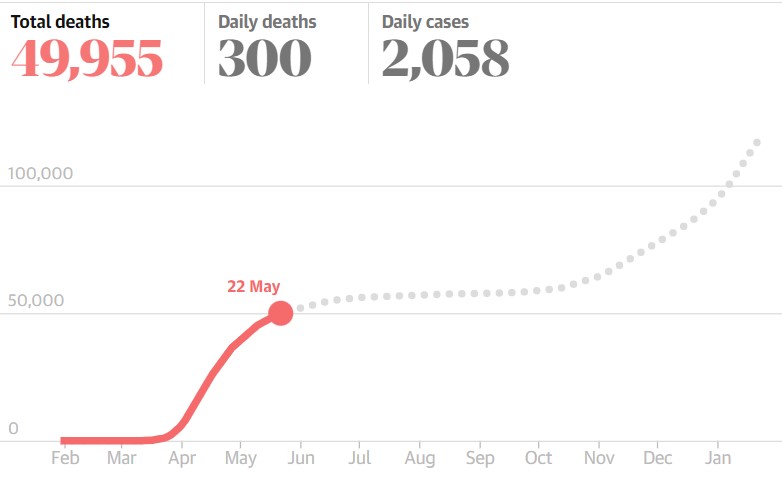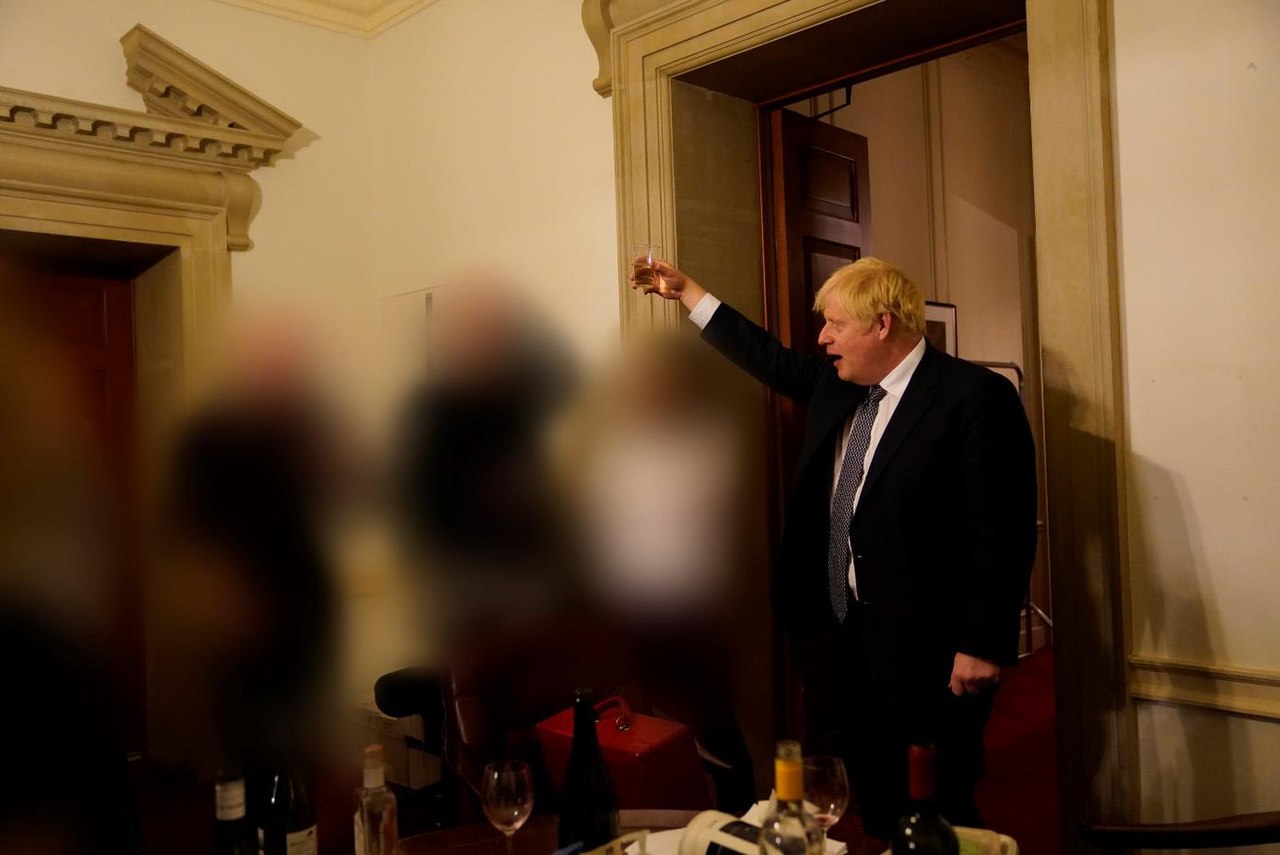The Donald Trump of Britain, Boris Johnson, has been ousted from his seat as Prime Minister in an unprecedented and spectacular fashion.
Previous British Prime Ministers have resigned, usually because they screwed up big time—Neville Chamberlain after World War II broke out partially due to his Policy of Appeasement; Anthony Eden after the Suez Canal Crisis; David Cameron after the 2016 Brexit Referendum—or that their party had lost the majority vote in the Parliament.
On the other hand, Boris Johnson’s tenure as Prime Minister since 2019 has been riddled with scandals, lawbreaking and questionable decisions, and during a time of economic upheaval too.
Truth to be told, the reasons for his forced resignation are all muddled together, but we’ll try our best to make it coherent.
The Final Straw That Broke The Camel’s Back
A quick crash course on British politics: Singapore takes after the British Parliament in structure.
The Prime Minister is concurrently the elected leader of the ruling majority party in the Parliament.
In this case, Boris Johnson was elected as leader and Prime Minister by his Conservative Party in 2019, after Theresa May resigned due to her inability to pass her Brexit Withdrawal agreement.
What drove the Conservative Party to topple Boris Johnson boils down to three main events: Brexit negotiations, COVID-19 pandemic policies, and the Partygate Scandal.

There were a few more scandals slipped in between, but they’re not as significant as the mentioned three.
It was a gradual chipping of confidence and trust over the course of years that caused Johnson to lose his seat.
The immediate trigger was a sexual abuse scandal.
Chris Pincher, the now-former Deputy Chief Whip, was first accused of groping two men on a drunken night at a private members’ club. Even before his appointment as Deputy Chief Whip of the Conservative Party in 2019, he had been dogged with sexual misconduct allegations, of which Boris Johnson initially denied knowing.
It was later revealed that Johnson was briefed about his past misdemeanours but elected him as Deputy Chief Whip anyway. When Johnson was questioned why he appointed Pincher, he replied that he had forgotten about those allegations.
If that doesn’t call your question and senility into question, I don’t know what will.
Pincher was forced to resign on 1 July, with lawmakers calling him “Pincher by name, Pincher by nature”.
The mutiny in his Conservative Party was officially kicked off by Finance Minister Rishi Sunak and Health Secretary Sajid Javid, two of Johnson’s most senior ministers, quitting within minutes of each other on Tuesday night (5 Jul).
Their resignation letters were filled with criticism for the Prime Minister’s behaviour.
Their bluntness was surprising because they had been vocal supporters of Johnson previously.
The next day, Schools Minister Robin Walker and Children & Families Minister Will Quince resigned on Wednesday, alongside a slew of resignations from junior lawmakers, government ministers and aides.
In the next 48 hours after the first two resignations, more than 50 resignations were handed in, practically immobilising the government and Conservative Party as that was nearly half the people on the payroll who were rebelling.
Among the numbers are Solicitor General Alex Chalk, Parliament Private Secretary to the Department of Transport Laura Trott, and vice-chair of Johnson’s Conservative Party Bim Afolami.
The new Education Secretary-turned-Finance Minister Nadhim Zahawi and former Chief of Staff for Downing Street (Prime Minister’s Office) and now Health Secretary urged Johnson to resign, just days after their promotion.
Isolated and powerless, Johnson had no choice but to resign from his post as he no longer had any substantial support from his Party.
Resignation Speech Outside 10 Downing Street
Traditionally, every British Prime Minister who has resigned gives a speech at Downing Street, the place where the Prime Minister is meant to reside.
“It was clearly the will of the parliamentary Conservative Party that there should be a new leader of the party and therefore a new prime minister,” Johnson said, before declaring that the process of choosing a new leader will commence immediately.
He then thanked the British public for voting for his party in 2019, before boasting that the Conservative Party he led had the biggest Conservative majority since 1987, and the biggest share of votes since 1979.
Like any narcissist, Johnson focuses on his accomplishments rather than his failures, listing that his administration had been vital in “reclaiming the power for [the United Kingdom] to make its own laws in parliament” by getting Brexit done, thus sparing the country from the restrictions of the European Union.
He states that Britain had the fastest vaccine rollout in Europe and came out of lockdowns the fastest and led the West in standing up against Putin’s invasion of Ukraine.
“In the last few days, I’ve tried to persuade my colleagues that it would be eccentric to change governments when we’re delivering so much,” he said, adding that it is “painful” to not see his term through, and expresses his sadness for losing the “best job in the world but them’s the breaks”.
Johnson announced that he will be staying as caretaker prime minister till October, and the new Conservative leader will be installed before the Party’s annual conference.
The Fallout from Brexit
One of the main reasons for the Conservative Party’s success in the 2019 Election is definitely because they ran on the “Get Brexit Done” rhetoric, where the Party promised a hard-line stance where they would see Brexit through, deal or no deal.
It seems to have resonated with the public’s weariness over the lack of resolution of the UK leaving the EU, to say nothing of how Theresa May had resigned from office because of her failure to get her Brexit Withdrawal Agreement through.
While stupid, Boris Johnson has been a strong proponent of Brexit ever since the referendum was called in 2016.
Back then, he had even campaigned for Brexit with a Vote Leave bus, with the slogan “We send the EU £350 million a week, let’s fund our NHS (National Health Service) instead. Vote Leave. #TakeControl”.

Although Johnson’s Conservative Party delivered in the end, the way he went about it and the economic and political consequences that followed were disastrous.
The Brexit deadline had been pushed back multiple times, since the British government couldn’t decide on the contents of their Withdrawal Agreement.
When Johnson became the Prime Minister after Theresa May resigned, the Article 50 period was set to end on 31 October. If the UK is unable to come up with an approved Withdrawal Agreement, then its departure from the EU will proceed with a no deal, though there were some default clauses attached to handle the tenuous relations in Northern Ireland.
In late August, mere weeks before the deadline, Johnson asked Queen Elizabeth to prorogue – or suspend – the parliament.
The excuse he gave was that the government should wait for the Queen’s speech which occurs in mid-October, a speech that sets out the government’s legislative agenda and marks the beginning of a new parliamentary session.
However, it was apparent to the members of the Parliament that Johnson had purposefully suspended the government to run the clock down to the Brexit deadline and stifle debates from happening.
What Johnson and his supporting lawmakers are aiming for is a no-deal Brexit, arguing that it would grant the country more flexibility to manage its own trade deals, laws, and border arrangements.
But most lawmakers are vehemently against a no-deal Brexit, because it would mean that Britain would lose complete access to EU’s single market and custom unions, and the country would be excluded from all legal and trade arrangements that had been made by bloc.
Thus, if the Parliament only reconvenes after October 14, it leaves his opposition with very little time to hammer out the details of a Withdrawal Agreement, which would in turn, make a no-deal Brexit more likely.
Johnson eventually succeeded in suspending the government on 28 August, one that would last till 14 October.
This was quickly overturned by the Supreme Court of the United Kingdom, who ruled unanimously that his advice to the Queen to prorogue the Parliament was unlawful, thus nullifying the suspension.
In the Speaker of the House John Bercow’s words, “Shutting down Parliament would be an offence against the democratic process and the rights of Parliamentarians as the people’s elected representatives.”
The fact that Johnson tried to prorogue the Parliament shattered a fair bit of trust that the lawmakers had in their new Prime Minister, to say nothing of how he expelled 21 conservative lawmakers who defied him on a bill for a no-deal Brexit.
Once the Withdrawal Agreement was passed and the UK officially left the EU, the economic impact was instantaneous.
Despite having a tariff-free Trade and Cooperation Agreement in place, taking effect on Jan 2021, there was more paperwork and checks that slowed down the speed of trade significantly.
The bureaucratic red tape caused a “steep decline” in trading relations, with the number of buyer-seller relationships falling by almost one-third.
Other studies have also shown that Britain’s post-pandemic trade performance has lagged behind the other developed countries, but the upper echelons refuse to officially blame it on Brexit.
Whenever the Downing Street is questioned, they would decline to commit to conducting a Brexit impact assessment, stating that it would “not be straightforward” due to the effects of the pandemic and the war in Ukraine.
A study done by Ipso UK and EU-UK Forum has shown that the proportion of Britons who think that Brexit has made their daily life worse has increased from 30% to 45% in June 2021. Only 17% responded that their lives have become better.
Join our Telegram channel for more entertaining and informative articles at https://t.me/goodyfeedsg or download the Goody Feed app here: https://goodyfeed.com/app/
COVID-19 Policies
If the Brexit negotiations have proven that Johnson is manipulative and a liar who can’t uphold his promises about making Britain better through Brexit, then the COVID-19 pandemic has exhibited that Johnson isn’t suited for the role of Prime Minister with some of his questionable policies.
Yes, it can’t be denied that Britain had the fastest vaccine rollout, since they started on 8 December.
It’s true that Britain has one of the leading pharmaceutical industries through their creation of AstraZeneca, Valneva and Novavax vaccines.
However, the government was either slow to implement the safety management measures or oscillated on their stances.
For instance, when most lawmakers were clamouring for greater restrictions like working from home instead of being in an enclosed workspace, Johnson thought it would be a brilliant idea to re-open schools again and discourage people from working remotely if the arrangement doesn’t suit them.
That was May 2020.
Lo and behold, when September arrived, he changed his tune and said, “Maybe don’t do that.”
While vaccines were only created in December 2020, testing kits for COVID-19 came out far earlier, around January 2020, as a matter of fact.
It’s easy to create inventions that can identify the anomaly, but finding the preventative cure is much harder.
However, Britain failed to set up an effective test-and-trace system over the next few months; even the healthcare workers weren’t properly tested.
It was only until May that the official NHS Test and Trace system was launched, but even then, its beginnings are often described as “slow, uncertain and often chaotic”.
By then, Britain was struck with its first wave, and badly too, so much so that their death toll increased by more than 40,000 in less than a month between April and May 2020.

Then there was the premature releasing of lockdowns, with the worst case study being 2020’s Christmas period.
Johnson called it “inhumane” to cancel Christmas amidst the soaring case numbers, ranging from 15,000 to 35,000 new cases daily through the holiday period.
It would only be two days later, on 18 December, where he said, “We cannot continue with Christmas as planned”.
He proceeded to impose Tier 4 curbs and caused panic all over the side Southeast and East of England as travellers rushed to the London train stations in an attempt to escape before the midnight rule changes.
The swing of his policies were legendarily bad.
Partygate Scandal
As Johnson is passing out orders all willy-nilly, and reiterating that people should keep to the safety management measures, he abides by none of them.
Rather, as time wore on, incriminating revelations about him holding parties at Downing Street started popping up for months, in defiance of coronavirus lockdowns.
Among the many parties he held and/or attended, one of them happened on the eve of Prince Philip’s funeral—a time where strict limits on socialising forced the Queen to sit alone as she said goodbye to her husband of nearly 74 years.

As a result, Johnson was fined by the London’s Metropolitan Police for attending a party on government premises.
With that, he became the first UK premier in history to have broken the law while in office.
Reactions from Other Countries
For Ukraine, this is sour news.
Ever since the Ukrainian crisis erupted, Johnson has been one of the most vocal and fervent supporters in the West, having provided $2.8 billion in military support packages and anti-tank weapons.
His willingness to help Ukraine is a genuine far cry from the other Western countries who have limited themselves to humanitarian aid, as the other countries are afraid of Russia’s retaliation if they arm Ukraine.
On the flip side, Russia is ecstatic.
Of course, given how much grief Johnson has given to the Kremlin government on public media, they didn’t hesitate to kick him while he was down, saying that they look forward to “more professional people” taking up the mantle of Prime Minister.
“We would like to hope that some day in Great Britain more professional people who can make decisions through dialogue will come to power,” the Kremlin spokesperson Dmitry Peskov said. “But at the moment there is little hope for that.”
The European Union and Ireland are on the same page, believing that a change in leadership will be a new chapter for possible cooperation and mutual respect, and that they could attempt to restore peace and stability to Northern Ireland, as Brexit had strained relations with both parties.
The United States remains the same, stating that they hope that the beneficial cooperation between the two countries can continue, as it has for decades.
US President Joe Biden hopes that the two countries can maintain “a strong and united approach to supporting the people of Ukraine, as the people defend themselves against Putin’s violation of their democracy, and help to hold Putin accountable for his actions.
What’s Next?
Well, it depends on how many candidates will be stepping up to be elected as the Leader of the Conservative Party.
Each candidate needs the support of eight lawmakers at least.
If there’s only one candidate running, it’s an immediate shoot-in.
If there’s two, the Conservative Party’s members nationwide will vote through a postal ballot.
If there’s more than two, the conservative members of Parliament will go through rounds and rounds of voting until the candidates are whittled down to the final two, and then the postal balloting will commence.
After the new Leader is decided, Boris Johnson will hand in his resignation to the Queen in-person, probably in October.
The Queen will then announce who she will be inviting as the next Prime Minister, and the chosen candidate will accept it. It’s a formality.
Read Also:
- Kurt Tay Meets Hater to Literally Fight Him at Yishun Void Deck & Livestreams the Fight
- Man Attacks Security Guard at Tampines After He Was Told to Put on a Mask to Enter a Building
- 8 Damning Accusations of Jeff Ng That Would Have Made Ivan Lim a Saint
Featured Image: Shutterstock / Michael Tubi
Would you be jailed for being half-naked in public? Well, the answer will shock you. Seriously. Watch this to the end and you'll understand:




